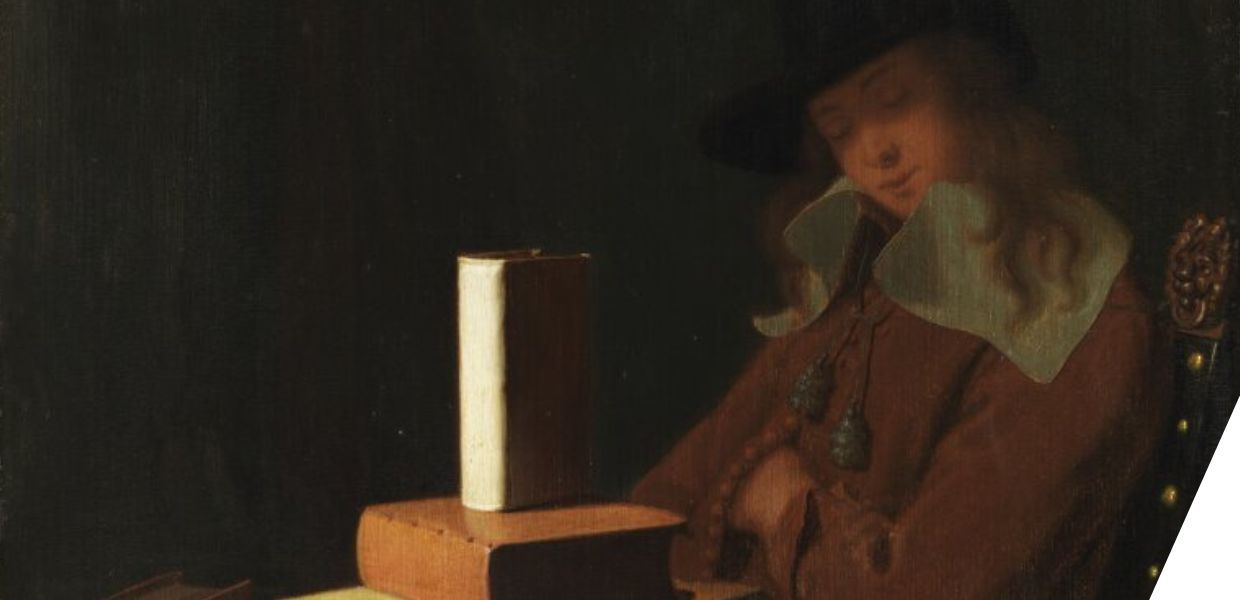‘Now what?’ This question constantly came to mind as I approached the finish line of my PhD degree. I had the exact same question when I completed my BA and MA degrees, aspiring to work with cultural heritage in the digital space yet struggling to determine my next steps. In retrospect, exploring this challenge was the essence of my internship at the Europeana Foundation: how can university graduates transition from academia to the cultural heritage sector? What opportunities exist if they wish to acquire digital skills related to cultural heritage or continue their education?
My name is Leo Cao, and I recently received my PhD in Journalism and Media from the University of Texas at Austin. My research focuses on the digitisation and platformisation of cultural heritage. While my dissertation examines the Google Arts & Culture platform, I have also been following the work of the Europeana Initiative, which advocates a fundamentally different infrastructural and governmental approach to the display and dissemination of cultural heritage online. While planning on a research stay at Leiden University, I applied for the first internship with the Europeana Foundation focused on new professionals. This opportunity allowed me to spend four months as a part-time intern with Europeana in The Hague in early 2024.
A focus on new professionals and students
My internship was part of Europeana’s strand of work on New Professionals in Digital Cultural Heritage and designed to take place within Europeana Research. A number of universities across Europe have begun to incorporate digital cultural heritage as a standalone module within their curriculum, while some have even introduced new degree programmes dedicated to digital cultural heritage. Europeana Research seeks to understand how digital cultural heritage is being integrated into higher education across Europe; how students can adapt to the digital transition within cultural heritage; and how professional organisations such as Europeana can facilitate this transition while fostering dialogue between academia and the cultural heritage sector.
Besides contributing to this research, I also assisted Europeana Research with organising two online events targeted at new professionals and related stakeholders. The first was New Professionals’ Twin Talks, which provided an opportunity for the audience to learn from two amazing speakers who recently entered academia and the cultural heritage sector. The second was Shaping the Future of Digital Cultural Heritage Professionals: Pioneering Approaches in Higher Education, a roundtable discussion about the design and implementation of university programmes with a strong emphasis on digital cultural heritage.
While the idea of the first event was already underway when I joined the team, I had the exciting opportunity to design the second event from the ground up. Based on my preliminary research, I identified a few degree programmes that feature digital cultural heritage at the centre of the curriculum, reached out to the programme directors/coordinators, and invited three of them to discuss how they designed the programme, what skill gaps they identified, and what advice they would offer to students entering the industry.
Apart from organising these events behind the scenes, I also had the honour of moderating the live sessions with the support of the amazing Europeana Foundation team. As a new professional myself, I truly valued the learning experience through organising these events, which were the most memorable moments during my short time with Europeana.
Knowledge exchange and additional opportunities for learning
In addition to my work as an intern, Europeana Foundation offered a great environment for me to get acquainted with various projects inside the organisation. I had the chance to talk to colleagues whose jobs may not directly intersect with my own but whose insights were none less interesting and important to my research interests. Getting to know those working behind the scenes to support the operation of an organisation as structurally complex as Europeana was a rare opportunity! On the very last day of my internship, I had a wonderful conversation with Director Harry Verwayen, about the history and mission of the Europeana Initiative, the launch of the common European data space for cultural heritage, and the cultivation of digital capacities among cultural institutions in a post-pandemic world.
Conducting the internship onsite in the building of the KB (National Library of the Netherlands) also allowed me to familiarise myself with other organisations in the building. I particularly enjoyed touring the KB LAB and engaging in conversations with other researchers and student interns who share my passion for digital cultural heritage. These inspiring conversations extended beyond academic discourses and offered me valuable insights into the real-world practices of cultural heritage professionals.
Find out more
Please check the Careers page for information about future internship opportunities.

